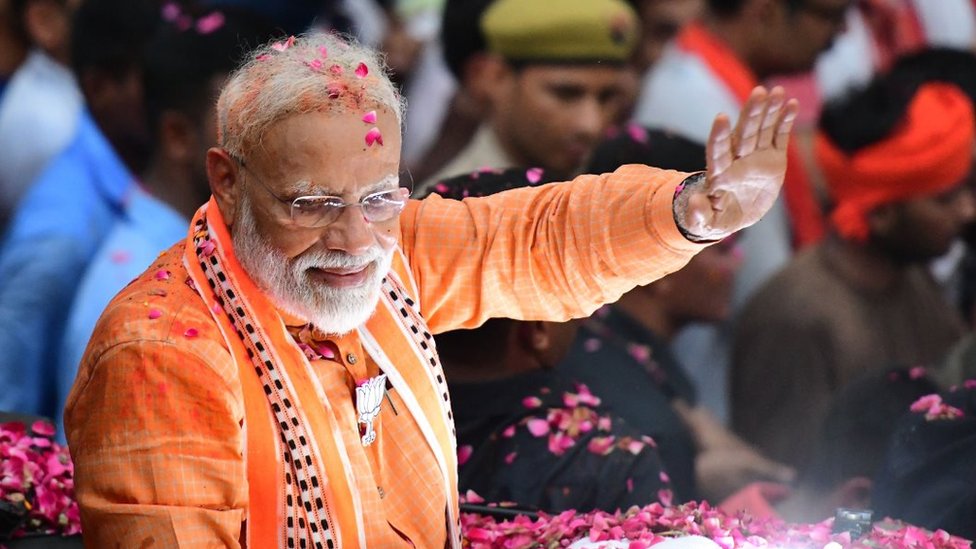In the vibrant tapestry of global democracy, one event stands out as a true testament to the power of the people: India’s general elections. With its sheer scale and magnitude, India’s democratic exercise is not just a national event but a spectacle that captures the world’s attention. As the dates for the world’s biggest election are announced, let’s delve into what makes this democratic extravaganza so significant and awe-inspiring.
India’s upcoming national election, set to be the world’s largest electoral event, has captured global attention with its scale and significance. The Election Commission of India recently announced the dates for this monumental democratic exercise, which will see nearly a billion eligible voters participate in shaping the country’s political landscape.
A Historic Democratic Endeavor: India’s Mega Election
India, known as the world’s largest democracy, is gearing up for a historic event as it prepares to conduct its general elections starting in April. With an estimated 969 million eligible voters, the election will span over two and a half months, culminating in the announcement of results on June 4. This massive electoral process will involve electing 543 politicians to the Lok Sabha, the lower house of parliament, with two additional members nominated to complete the house’s total strength of 545. From the snow-capped peaks of the Himalayas to the sun-kissed shores of the Indian Ocean, the election machinery swings into action, ensuring that every voice is heard and every vote counts.
Unprecedented Scale and Complexity
The sheer magnitude of India’s election is unparalleled, with voting set to take place in seven phases from April 19 to June 1. The staggered polling approach allows for the deployment of millions of polling staff and security personnel across the country’s diverse terrain, from the snow-clad Himalayas to the deserts of Rajasthan and the islands in the Indian Ocean. This extensive logistical operation ensures that every eligible voter has the opportunity to cast their ballot.
Financial Implications and Transparency
India’s electoral process is not only monumental in size but also in financial terms. The projected cost of the election is expected to exceed $14.4 billion, making it one of the most expensive electoral campaigns globally. However, concerns remain about the transparency of election spending, with candidates sometimes resorting to unaccounted funds to sway voters. Efforts to monitor and regulate campaign finances are crucial to uphold the integrity of the electoral process.
Inclusivity and Geographic Challenges
One of the remarkable aspects of India’s election is its inclusivity, with polling stations set up in remote and challenging locations to ensure universal access to voting. From the highest polling station at 15,256 feet in Himachal Pradesh to the far-flung Andaman and Nicobar Islands, election officials go to great lengths to facilitate voting for all citizens, regardless of their geographic location.
Dates Announced
The excitement surrounding India’s general elections reached fever pitch as the Election Commission of India announced the dates for the upcoming polls. Spanning several weeks, the electoral process will commence with polling in some states and culminate with the final phase of voting in others. The dates are not just markers on a calendar but milestones in India’s democratic journey, signaling the onset of a spirited contest of ideas, ideologies, and aspirations.
Political Dynamics and Prime Minister Modi’s Campaign
The upcoming election holds significant implications for the political landscape of India, with Prime Minister Narendra Modi seeking a rare third consecutive term in office. Modi’s Bharatiya Janata Party (BJP) is expected to dominate the polls, riding on a platform that emphasizes economic growth and Hindu majoritarianism. The opposition, led by the Indian National Congress, faces the challenge of uniting disparate parties under the INDIA alliance to mount a credible challenge to the BJP’s dominance.
Global Significance and Democratic Values
India’s election is not just a national event but a global spectacle that showcases the vibrancy of democracy on a grand scale. As the world’s largest democracy, India’s electoral process serves as a beacon of democratic values and principles, demonstrating the power of citizen participation and electoral accountability.
The significance of India’s general elections extends far beyond its borders, reverberating across the global political landscape. As the world’s largest democracy, India serves as a beacon of hope and inspiration for aspiring democracies around the world. The peaceful conduct of elections, the smooth transfer of power, and the vibrancy of political discourse underscore India’s commitment to democratic values and principles.
India’s announcement of dates for the world’s biggest election heralds a momentous democratic exercise that underscores the country’s commitment to upholding democratic ideals and engaging its vast electorate in shaping the nation’s future. The upcoming polls represent a celebration of democracy, diversity, and civic engagement on a scale that is truly unparalleled in the world.
Conclusion:
As India gears up for the world’s biggest election, the stage is set for a spectacle of democracy like no other. From the announcement of dates to the culmination of polling, the electoral process is a celebration of the collective will and wisdom of the Indian electorate. As millions of voters exercise their right to vote, they reaffirm their faith in democracy and the promise of a better tomorrow. In a world beset by challenges, India’s democratic journey stands as a shining example of the power of the people to shape their own destiny.

